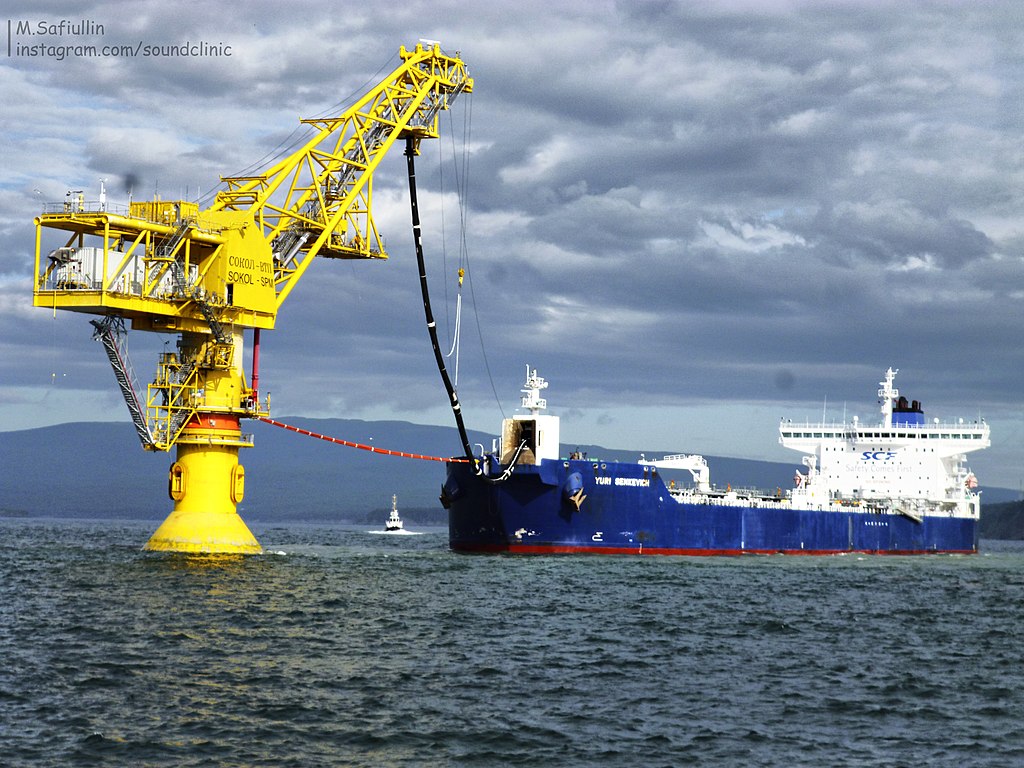On Tuesday, US President Joe Biden banned oil and natural gas imported from Russia in response to Russia’s invasion of Ukraine. The United Kingdom (UK) plans a similar ban. For much of Europe, which depends heavily on fuel from Russia, a similar move isn’t possible.
In an effort to punish Russia for its invasion of Ukraine, Western countries have put strong sanctions on Russia. These punishments have cost Russia’s businesses and government huge amounts of money.
But as long as countries are buying oil and other energy products from Russia, the country will still have lots of money flowing in. And when energy prices are extremely high, like they are now, Russia makes even more money.
😕
This image has not been loaded because of your cookie choices. To view the content, you can accept 'Non-necessary' cookies.
On Tuesday, US President Joe Biden (above) banned oil and natural gas imported from Russia in response to Russia’s invasion of Ukraine. The UK plans a similar ban. For much of Europe, which depends heavily on fuel from Russia, a similar move isn’t possible.
Ukraine President Volodymyr Zelensky has been calling for Western countries to stop buying fossil fuels from Russia. Not buying oil from Russia is one of the strongest sanctions possible.
Oil Products and Natural Gas
Oil companies take petroleum or “crude oil” and use special processes to turn this rough oil product into more commonly known fuels like gasoline (petrol) and diesel. Natural gas is often used for heating. Unlike oil products, it’s normally not a liquid and is usually transported using pipelines, not boats.
But those sanctions come at a price. Prices for oil and oil products were already rising before Russia invaded Ukraine. After the invasion, prices shot up even higher. On Tuesday, the average gas price in the US was the highest it’s ever been – $4.17 a gallon ($1.10 a liter).
😕
This image has not been loaded because of your cookie choices. To view the content, you can accept 'Non-necessary' cookies.
Prices for oil products were rising before Russia invaded Ukraine. After the invasion, prices shot even higher. On Tuesday, the average gas price in the US was the highest ever – $4.17 a gallon ($1.10 a liter). Above, a gas station in Washington, DC, where prices are even higher.
Russia is the world’s second largest supplier of oil. Oil companies are already feeling pressure to cut ties with Russia. Now, many companies don’t want to buy oil from Russia, even if it’s allowed. That puts more pressure on Russia, but it raises prices.
Without oil from Russia, there is far less oil for fuels like gasoline and diesel. That means prices for these products will continue to rise. That’s likely to drive up other prices, too, since making products requires energy.

(Source: Maksim Safiullin [CC BY 3.0], via Wikimedia Commons.)
The US gets about 8% of its oil products from Russia. Since the US produces lots of oil, it won’t be that hard for the US to get by without Russian oil. Mr. Biden’s action, which also bans natural gas and coal from Russia, has been supported by both Democratic and Republican members of Congress.
Even so, Mr. Biden has made efforts to increase oil from other sources. The US and its allies will be releasing 60 million barrels of oil to make it easier to get by without oil from Russia
The UK says it will end its use of Russian fuels by the end of the year. Currently the UK gets about 8% of its oil and nearly 4% of its natural gas from Russia.
😕
This image has not been loaded because of your cookie choices. To view the content, you can accept 'Non-necessary' cookies.
Europe depends more heavily on Russia for fuel. Europe gets roughly 25% of its oil and 40% of its natural gas from Russia. Above, the beginning of the building of the Nord Stream pipeline in 2010. The pipeline carries natural gas from Russia to Europe.
But Europe depends much more heavily on Russia for fuel, and is unlikely to join in similar bans. Europe gets roughly 25% of its oil and 40% of its natural gas from Russia. Russia has threatened to cut off Europe’s natural gas supplies if Europe stops buying its oil. Even so, on Tuesday, the European Union announced a plan to cut the amount of natural gas it gets from Russia by 66% by the end of the year.
In the end, it’s not clear how much of an effect these actions will have. Russian President Vladimir Putin seems determined to continue his war on Ukraine, despite its very high costs.
Did You Know…?
One of the many sad results of Russia’s invasion of Ukraine is that it is taking attention away from important action on the climate crisis. Even though renewable energy sources are producing more and more energy, they still have not come close to replacing fossil fuels.
Some people believe that current energy problems could force countries to focus even more strongly on renewable energy. But for now, it has put leaders who have argued for strong action on the climate crisis in the awkward position of encouraging fossil fuel suppliers to produce more.
